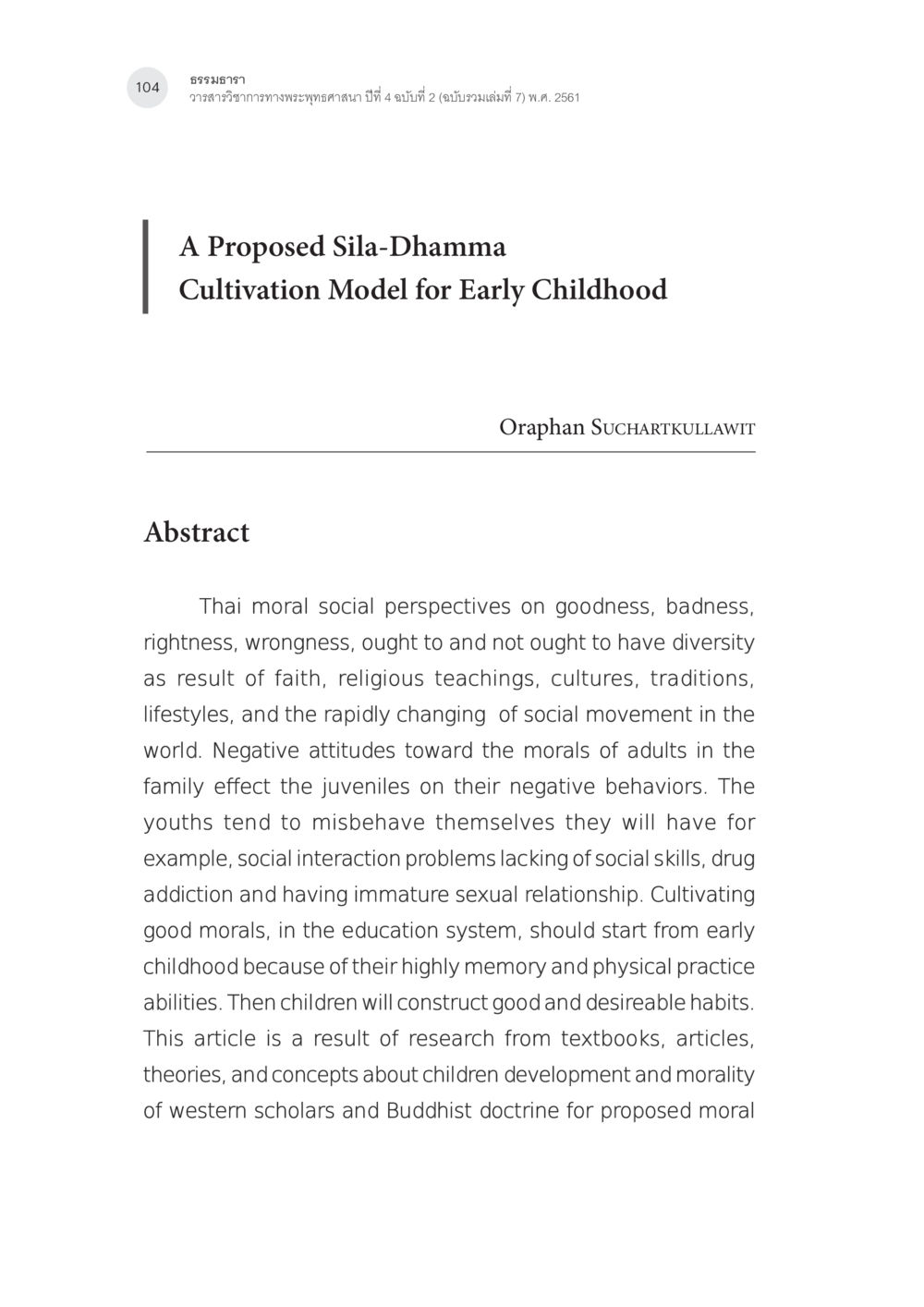A Proposed Sila-Dhamma Cultivation Model for Early Childhood : หน้า 5/33
การสร้างเสริมศีลธรรมในเด็กปฐมวัย : หน้า 5/33 เสนอโมเดลการพัฒนาศีลธรรมสำหรับเด็กปฐมวัย เพื่อส่งเสริมคุณธรรมในสังคมไทย
0 ครั้ง

สรุปเนื้อหา
บทความนี้เสนอโมเดลการพัฒนาศีลธรรมสำหรับเด็กปฐมวัยในสังคมไทย เน้นความสำคัญของการปลูกฝังคุณธรรมในวัยเด็ก เพื่อสร้างนิสัยที่ดีและความสัมพันธ์ในสังคมที่มีคุณภาพ การศึกษาให้ดีเป็นสิ่งจำเป็นโดยเฉพาะสำหรับเด็กเนื่องจากพวกเขามีความสามารถในการจดจำและฝึกฝนทางกายภาพสูง ความเชื่อและการสอนของพระพุทธศาสนา หรือวรรณกรรมจากนักวิชาการตะวันตกเป็นต้นแบบสำคัญในกระบวนการนี้ การพัฒนาศีลธรรมตั้งแต่เนิ่นๆ จะช่วยเด็กหลีกเลี่ยงปัญหาสังคม เช่น การติดยาเสพติด และพฤติกรรมที่ไม่เหมาะสม
หัวข้อประเด็น
-ความสำคัญของศีลธรรมในเด็ก
-ปัญหาสังคมและการปลูกฝังคุณธรรม
-การศึกษาและพัฒนาศีลธรรม
ข้อความต้นฉบับในหน้า
104
ธรรมธารา
วาสนาวิวิธวาทากรพระพุทธศาสนา ปีที่ 4 ฉบับที่ 2 (ฉบับรวมเล่มที่ 7) พ.ศ. 2561
A Proposed Sila-Dhamma Cultivation Model for Early Childhood
Oraphan SUCHARTKULLAWIT
Abstract
Thai moral social perspectives on goodness, badness, rightness, wrongness, ought to and not ought to have diversify as result of faith, religious teachings, cultures, traditions, lifestyles, and the rapidly changing of social movement in the world. Negative attitudes toward the morals of adults in the family effect the juveniles on their negative behaviors. The youths tend to misbehave themselves they will have for example, social interaction problems lacking of social skills, drug addiction and having immature sexual relationship. Cultivating good morals, in the education system, should start from early childhood because of their highly memory and physical practice abilities. Then children will construct good and desirable habits. This article is a result of research from textbooks, articles, theories, and concepts about children development and morality of western scholars and Buddhist doctrine for proposed moral
หนังสือที่เกี่ยวข้อง
Load More

































